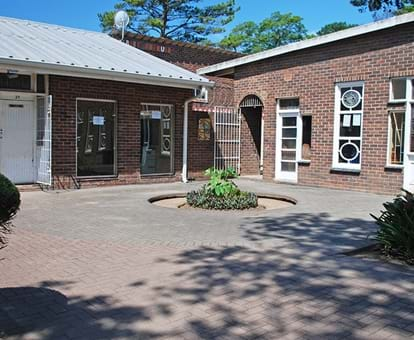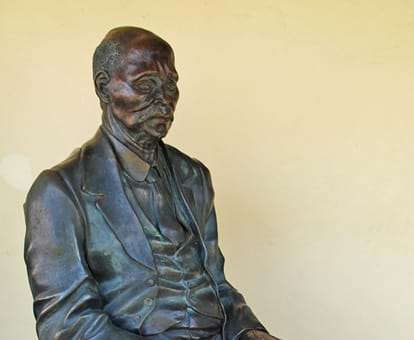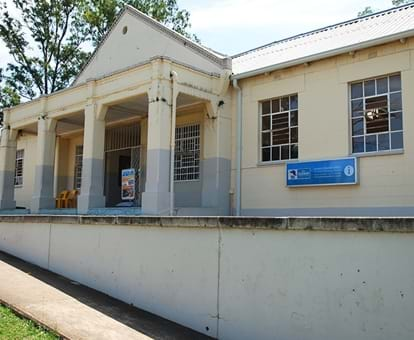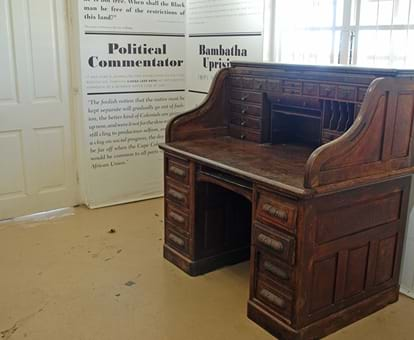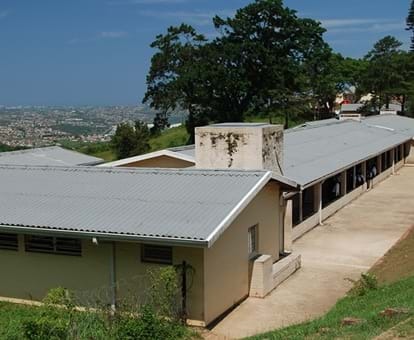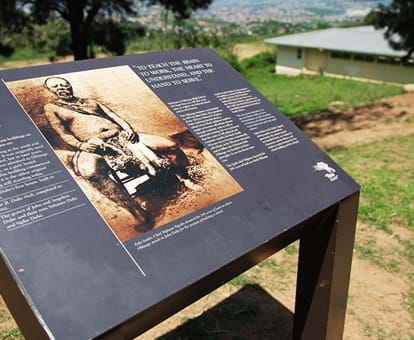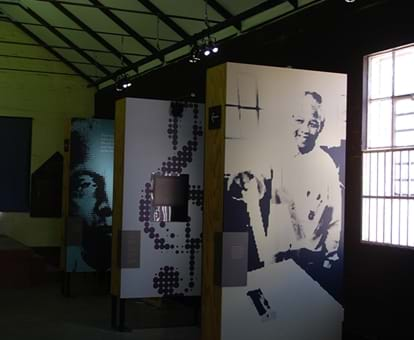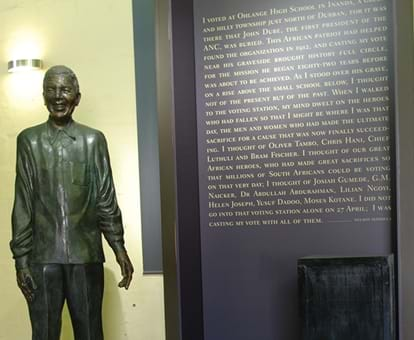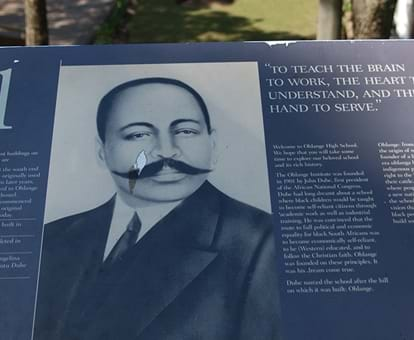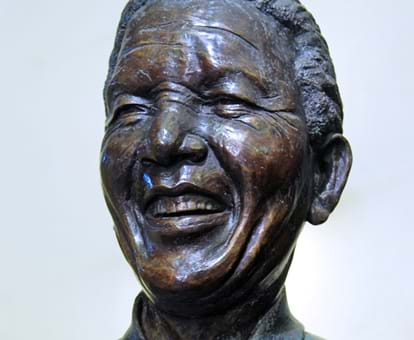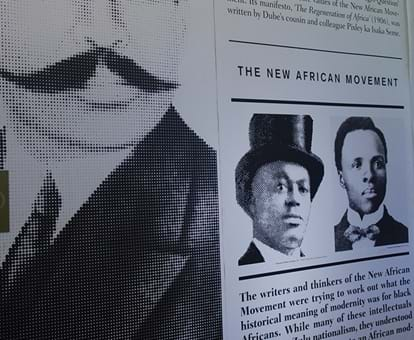By creating an account, I agree to the
Terms of service and Privacy policy
Choose your country and language:
Africa
Americas
Asia Pacific
Europe
OOn April 27, 1994, Nelson Mandela, casted his vote at Ohlange Institute, a school founded by John Langalibalele Mafukuzela Dube - the first president of the ANC.
Not only was this the first democratic election in South Africa, but it was also the first time that Mandela had ever voted in his life. Mandela was 72 years old.
AAfter his vote was cast in the school's chapel, Mandela visited Dube's grave, where he is believed to have said: “Mr President, I have come to report to you that South Africa is free today.”
Ohlange Institute
MMandela chose to travel all the way from Pretoria, on one of the most important days in the history of South Africa, to cast his vote in the chapel of a century-old school in the township of Inanda, 28 km north west of Durban. Dube, built the Ohlange Institute himself (Ohlange means 'where all nations come together'). It was no ordinary school, but a school built and managed by black South Africans at a time when it was held that black people could neither develop nor manage institutions of their own.
DDube's grandson, who witnessed Mandela's journey to the graveside of his grandfather spoke of Mandela's connection with his grandfather's spirit that would give him the strength and wisdom necessary to lead the country.
Inanda is regarded by many as the 'cradle of democracy in South Africa'. It is also believed to have more history per square centimetre than anywhere else in South Africa. As a result, the city of Durban has designed the Inanda Heritage Route, with The Ohlange Institute as one of the prominent stops.
Related Articles

